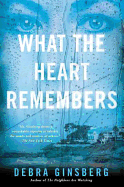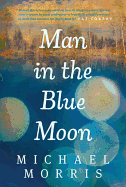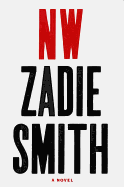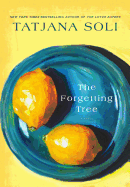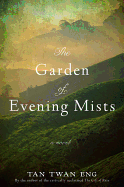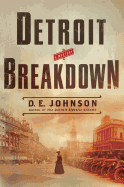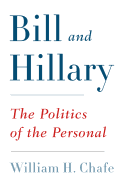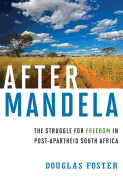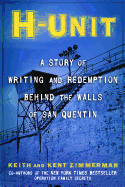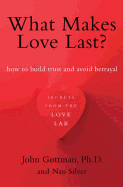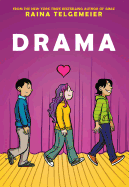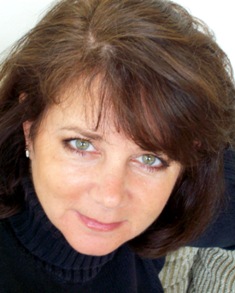 Author Debra Ginsberg has invited us into her professional life in Waiting and Blind Submission; into motherhood and advocacy in Raising Blaze; matters psychic and pseudo-psychic in The Grift; sisterhood and family life in About My Sisters; and psychological suspense in The Neighbors Are Watching. Her new novel is What the Heart Remembers (NAL), a combination of several of her favorite themes and the introduction of a striking new consideration (see our review below). She lives in San Diego, Calif., within five minutes of all members of her family and is also an editor, freelance reviewer--yes, you've seen her reviews in Shelf Awareness--and NPR commentator.
Author Debra Ginsberg has invited us into her professional life in Waiting and Blind Submission; into motherhood and advocacy in Raising Blaze; matters psychic and pseudo-psychic in The Grift; sisterhood and family life in About My Sisters; and psychological suspense in The Neighbors Are Watching. Her new novel is What the Heart Remembers (NAL), a combination of several of her favorite themes and the introduction of a striking new consideration (see our review below). She lives in San Diego, Calif., within five minutes of all members of her family and is also an editor, freelance reviewer--yes, you've seen her reviews in Shelf Awareness--and NPR commentator.
You have mined both your own experiences and your imagination for books in various genres. How does your writing style and approach change for each?
When I started writing, before my first memoir, I thought of myself as a novelist. Then, Mary Karr and Frank McCourt came along and opened up memoir, and I found that I really enjoyed writing in that genre. I have always thought of myself as the only series character in my own life, so it's easy to switch between memoir and fiction. Having a conversational style makes it easy because the writing is actually from the same template--that of a character going through stages, except fiction is made up and memoir is not. I am interested in what is going on in people's heads. What are they really thinking? Why that bumper sticker? Why that yard sign? What I want to consider and explore in all my books, whatever genre, is the line between what is real and what is not. When people encounter things they don't understand, they become fearful and then hostile. I try to be open-minded, to write about and understand different mindsets.
A housekeeping question: since you have introduced your readers to your son and your family, how is everybody?
Everybody is just fine. Blaze is in college, slowly but surely earning his A.A. and planning to go on to a four-year college. He is working, getting very good grades and looking forward to his book, Episodes: Scenes from Life, Love and Autism, out in paper in November. As for my family, we live very close to each other and see each other frequently. I think it will always be this way. My husband, Gabe, is also close to his family so it works for us.
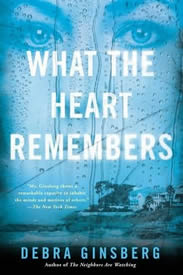 Are you a bit of a mystic or a psychic?
Are you a bit of a mystic or a psychic?
I have been interested in these matters since I was eight years old. Both my parents were into tarot, I Ching, astrology; they were always open to and interested in other philosophies. I watched my parents and then I took it up. They left it behind and became interested in other things, but I remained fascinated by the history, imagery, lore and stories attached to these other ways of thinking about life and the world. I started doing charts but would never do it professionally because I can't take money for it. I think that when a person opens up to me in that way and I am in a position to receive, I gain an insight that gives me a tremendous responsibility to them. It is intimate, not commercial. It is not just numbers; it is part psychology and intensely personal.
You bring up a fascinating topic in What the Heart Remembers: cellular memory; that is, is it possible that a transplanted organ brings with it the thoughts, feelings and attitudes of its donor?
Here's where that came from: I had one baby, Blaze, and while I was in an excruciating and long induced labor in unbelievable pain, I was furious with my mother for not warning me or preparing me. She had five children without medication, so I thought that I could do that, too. At least once. When the nurse told me that "the moment this baby looks at you and says 'I love you, Mama,' you will forget all this," all I could think of was: I am SO gonna remember every second of this! And I do. Not the pain itself, but the memory of it. I believe that my exploration of cellular memory started with that notion. It stands to reason that cells would hold memory in the brain and possibly elsewhere.
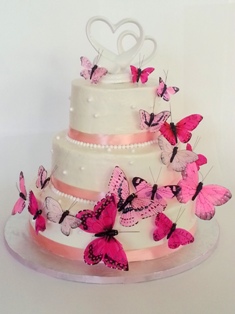 Everyone we talk to mentions the spectacular cakes you have started baking and decorating. Where did that come from, Kitchen Goddess?
Everyone we talk to mentions the spectacular cakes you have started baking and decorating. Where did that come from, Kitchen Goddess?
Gabe starting bringing me cookbooks from one of the publishers he represents and bemoaning the fact that he loves desserts and nobody was making any for him. So, I started baking cakes. It has turned into a terrific creative outlet, and I am having fun with it. I made my first commissioned cake recently and have orders for others. The first one was for the author of the Dark Vengeance series, Jeff Mariotte. It was a gigantic dark chocolate cake with sugar leaves that looked like glass, repeating the cover motif of his books. I've made a Stonehenge cake, an Angry Birds cake and a cake for my artist mother with a canvas and a paint brush and a still life on it. I'm working on one about knitting now. It is usually fun, but occasionally has me near tears when something doesn't work.
So, in your down time from baking, what's next at your writing desk?
Two things: I'm working on a novel, and I also have a cookbook memoir involving cake. I don't know what will be finished first. --Valerie Ryan, Cannon Beach Book Company, Cannon Beach, Ore.
Debra Ginsberg: Author and Kitchen Goddess
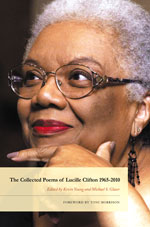



 Author Debra Ginsberg has invited us into her professional life in Waiting and Blind Submission; into motherhood and advocacy in Raising Blaze; matters psychic and pseudo-psychic in The Grift; sisterhood and family life in About My Sisters; and psychological suspense in The Neighbors Are Watching. Her new novel is What the Heart Remembers (NAL), a combination of several of her favorite themes and the introduction of a striking new consideration (see our review below). She lives in San Diego, Calif., within five minutes of all members of her family and is also an editor, freelance reviewer--yes, you've seen her reviews in Shelf Awareness--and NPR commentator.
Author Debra Ginsberg has invited us into her professional life in Waiting and Blind Submission; into motherhood and advocacy in Raising Blaze; matters psychic and pseudo-psychic in The Grift; sisterhood and family life in About My Sisters; and psychological suspense in The Neighbors Are Watching. Her new novel is What the Heart Remembers (NAL), a combination of several of her favorite themes and the introduction of a striking new consideration (see our review below). She lives in San Diego, Calif., within five minutes of all members of her family and is also an editor, freelance reviewer--yes, you've seen her reviews in Shelf Awareness--and NPR commentator.  Are you a bit of a mystic or a psychic?
Are you a bit of a mystic or a psychic? Everyone we talk to mentions the spectacular cakes you have started baking and decorating. Where did that come from, Kitchen Goddess?
Everyone we talk to mentions the spectacular cakes you have started baking and decorating. Where did that come from, Kitchen Goddess?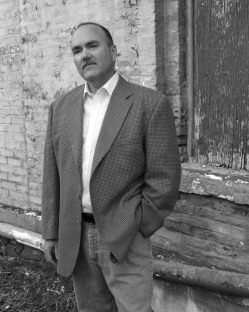 With a few notable exceptions, authors have ignored Detroit for the last 50 years, leaving the city to rust away in the weeds like so many of its creations. That's changing now as the city struggles to find its way back from the abyss.
With a few notable exceptions, authors have ignored Detroit for the last 50 years, leaving the city to rust away in the weeds like so many of its creations. That's changing now as the city struggles to find its way back from the abyss.